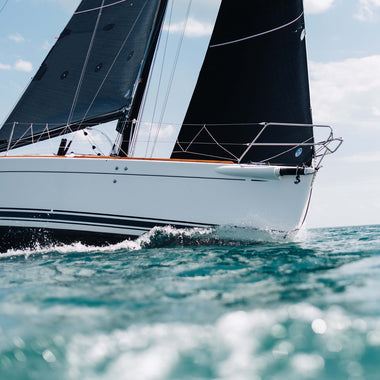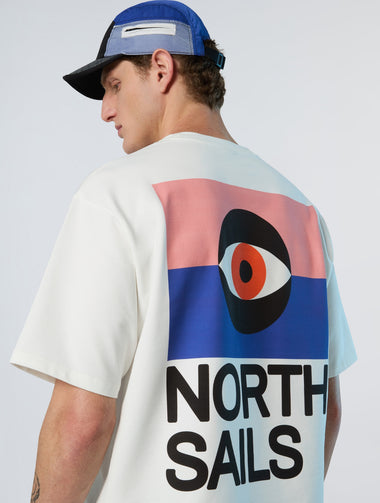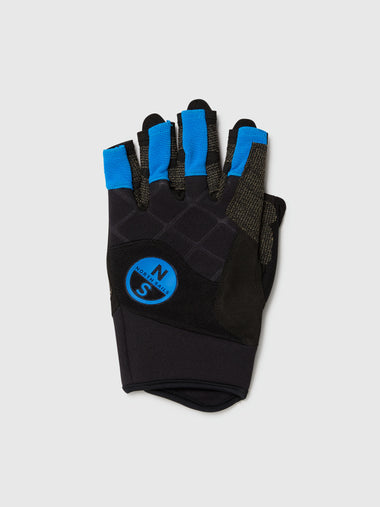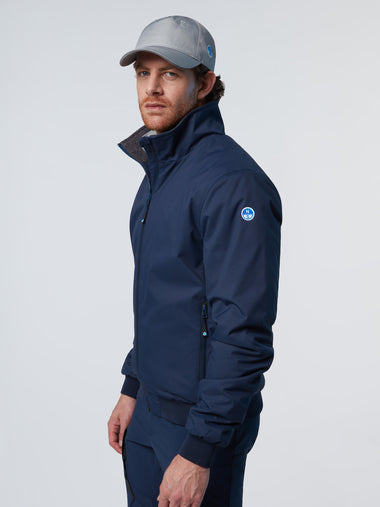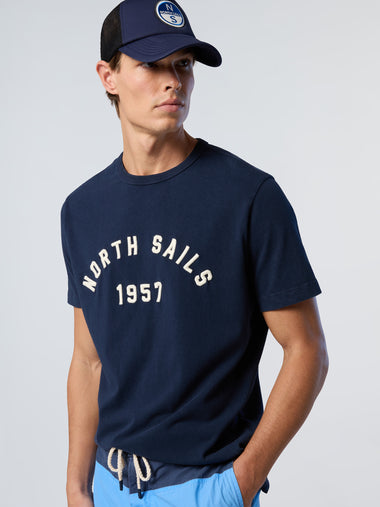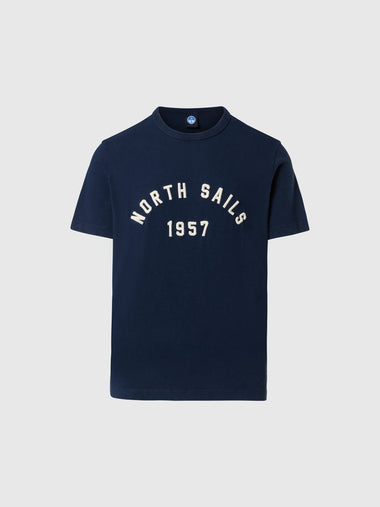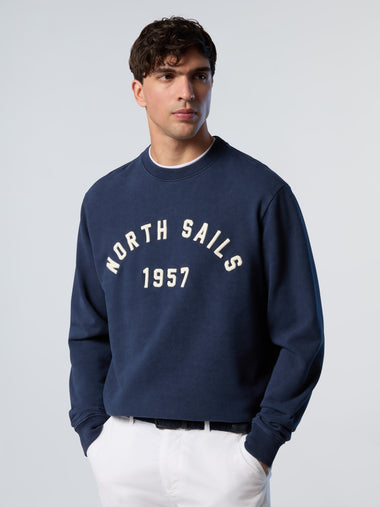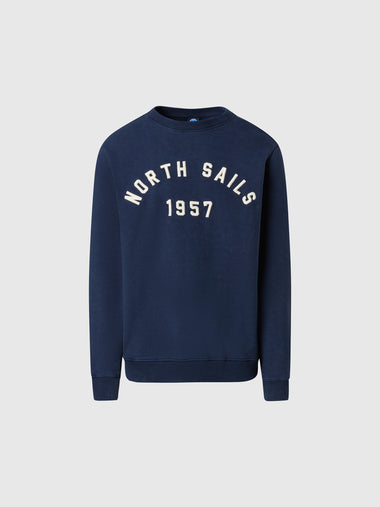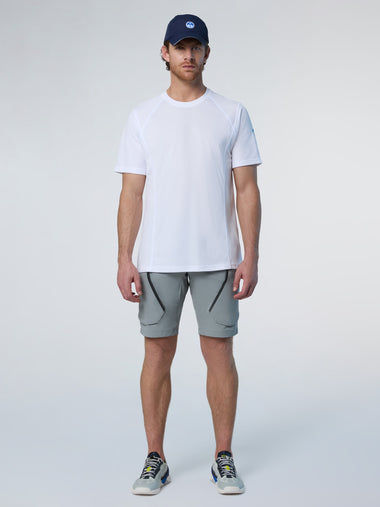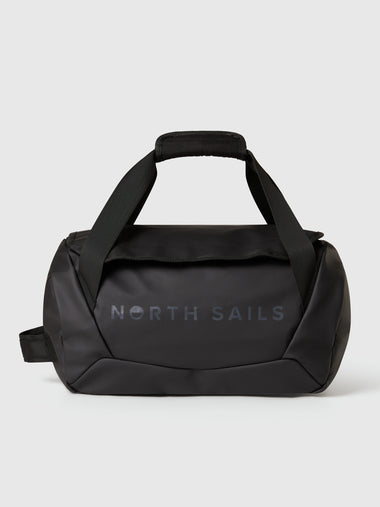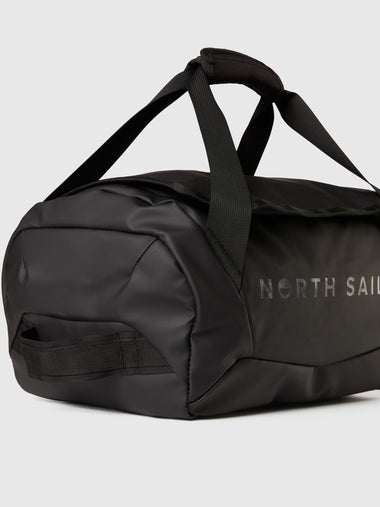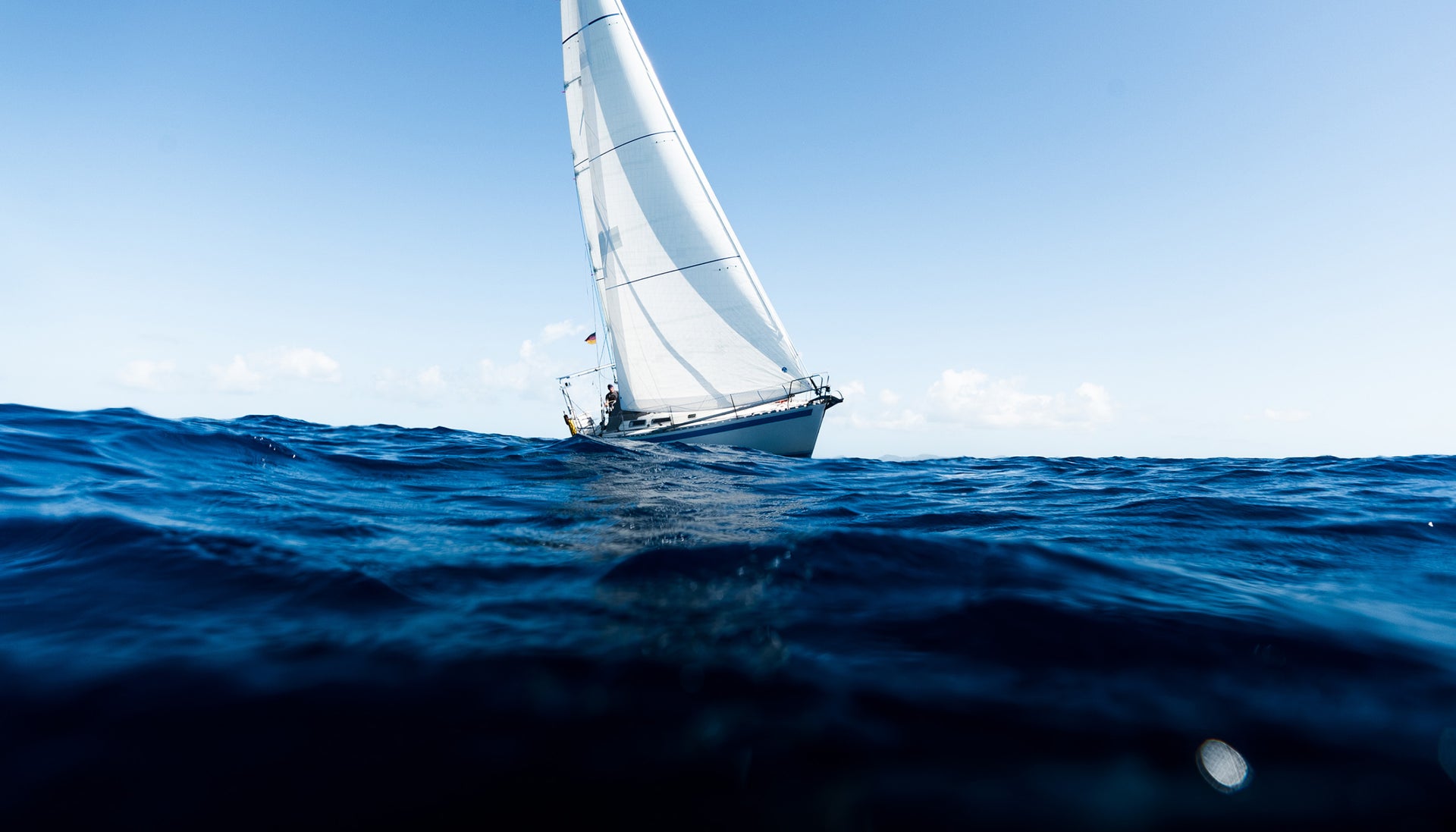THE LONG LIFE OF A NORTH SAIL
Keeping Our High-Performance, Long-Lasting Sails Out of the Bin
By Mădălina Preda
North Sails are built for performance and longevity. But even the longest-lasting sail will reach the end of its intended use at some point. Here is how we are keeping our sails out of the bin.
It’s the Thursday before the start of the 2024 Transat CIC and the La Base port in Lorient is teeming with sailmakers, boat owners, sailors and sailing fans. Formerly a shelter for German submarines during the Second World War, the area has gone through an impressive rehabilitation program, with sailing and naval history at its core.
Lorient is for offshore sailing what San Francisco is for tech startups— multiple people described this Breton city to me as the Sailing Valley. Here, boat builders, sailmakers and race organizers conspire to build the best boats that can win the toughest ocean races, helped by ideal sailing conditions and easy access to the Atlantic Ocean.
The deep water in Lorient’s natural harbor allows boats from the Mini 6.50 to the Ultim to come in and out even if the tide is low. This makes it ideal for hosting major events like The Transat, the Retour à La Base in IMOCA or the 24H Ultim. The town is also a center for maritime innovation, with several research institutions like Bretagne Innovation and Lorient Grand Large headquartered here.

The Sailing Valley of Lorient hosts many major sailing events, such as the Transat CIC, which in 2024 North Sails hosted a significant market share.
This tight-knit ecosystem of sailors, researchers and manufacturers makes Lorient an ideal location for circular business models, such as 727 Sailbags, a local upcycling business that keeps dead sails out of the landfill by giving them a new useful life.
DURABLE. VERSATILE. NEVER WASTED.
The week of the Transat CIC, the 727 Sailbags workshop was bustling with curious visitors who were spilling from one room into the other, learning about the process to collect, sort, cut, design and sew bags and home accessories from discarded sail material.
In the cutting room, sail-cutting operator Fred Daniel was using an automated cutting machine that the 727 team had configured with proprietary programs to create sail material kits for crafting various bag models. Daniel was working with a North Sails gennaker collected from the Tiara yacht. The plan? To transform it into a beach bag perfect for summer breaks.
North Sails lofts across Europe have been acting as hubs for the upcycling of sails for many years, but in 2022 we launched an official repurposing program, first with Sea Bags in Maine for all our North American customers and more recently with 727 Sailbags in Lorient for all our European customers.

Sail collector Luc Fortuné cuts used sailcloth recently collected from the local North Sails loft in Lorient, a few minutes away from the 727 workshop.
“Our sails can be made from materials like carbon fiber, Kevlar, and aramid which are hard to recycle”, says Thomas Normand, General Manager for North Sails France. “By repurposing dead sails at the end of their useful lives, North Sails diverts sail waste from landfills. Creating new products from old sails, such as bags and accessories, opens new markets and promotes a circular economy.”
“All types of sail materials are interesting to us,” says Luc Fortuné, sail collector at 727 Sailbags. Even the technical sails that arrive to the workshop too worn to sail optimally can be repurposed locally – 727 works with local painters, venues and event organizers who turn the tired sails into banners and posters for festivals or local businesses, and even art.
In previous years, it was not uncommon that Luc would have to call sailmakers and race organizers to ask for discarded sails, but in 2024 they collected sufficient material for all their product needs, thanks in part to the new partnership with North Sails.

Lydia Jaffray seams together a beach bag from an old North Sails mainsail.
Once the sailcloth materials are cleaned and sorted, the designers imagine new products, inspired by the available materials. “My inspiration is the sea, the boats here in Lorient and their sails, and the materials that we collect,” says Laura Cadre, designer at 727 Sailbags.
Cadre’s job is not very repetitive, due to the nature of working with whatever is available. “It’s always different,” she says. “We use Dacron for tote bags and luggage because of the thickness and durability. And we use spinnakers for bum bags as they are very colorful, and being a thinner fabric, they are also interesting to use in the lining of clothes.”
FROM WASTE TO WORTHY CAUSES
Local North Sails lofts have always provided excess sailcloth or dead sails to local recyclers, charities and craftsmen. The strong performance and durability of our sailcloth makes it appropriate for all sorts of applications, from disaster relief shelters needed for humanitarian aid, to art installations or zero-gravity soft-rack stowage bags for the International Space Station.

Each 727 Sailbags product features a certificate of origin sewn inside, which shows the origin of the sail.
Since the start of our repurposing program, together with Sea Bags, we have upcycled more than 20,000 kg of dead sails from North Sails customers in North America. There is no fee to our customers or our upcycling partners for collecting discarded sails or supplying the excess materials; instead, we assign a dollar-value to the weight of donated sail material, and at the end of the year we calculate the total amount of repurposed cloth and its monetary value. The resulting amount is then donated by Seabags to charitable causes that we’ve selected together. The first charities that will receive donations in 2024 are Sail to Prevail in Newport, Judd Goldman Adaptive Sailing in Chicago and Challenged Sailors in San Diego, all organizations that are working to improve the well-being of people with disabilities through the sport of sailing.

Nicolas Veto is the co-owner of 727 Sailbags together with Matthieu Bimbenet. The two bought the company in 2018 from founder Jean-Baptiste Roger who first started making products from discarded sails and selling them in local markets in 2005. “We found all the ingredients, and a beautiful story and we fell in love with 727 Sailbags,” Veto said.
And together with 727 Sailbags, we collected and recycled 1,750 square meters of dead sails from Noth Sails lofts in Lorient, the Netherlands, Italy and Croatia since the start of our partnership in August 2023. “The proceeds from the value of these materials go directly to an NGO that we chose together: Wings of the Ocean,” says Nicolas Veto, co-owner of 727 Sailbags. “They are a very dedicated team that travels on sailboats to fight against ocean pollution across the world. We are thrilled to partner with North Sails because we share the same passion for the ocean, sailing and a common goal to preserve the planet for generations to come.”
All our North Sails customers can contact their local loft to understand what upcycling opportunities exist for their sails and how they can participate in our repurposing program. Let us take them off your hands and turn them into new quality products that tell the stories of their journeys.

Shop North Sails x 727 Sailbags
Learn More
ABOUT THE AUTHOR:
Mădălina Preda is at the forefront of efforts to protect the ocean. Formerly the Communication Specialist at Greenpeace International, and the Brand Managing Editor at Patagonia, she is now steering North Sails to go beyond marine sustainability to become Ocean Positive.
